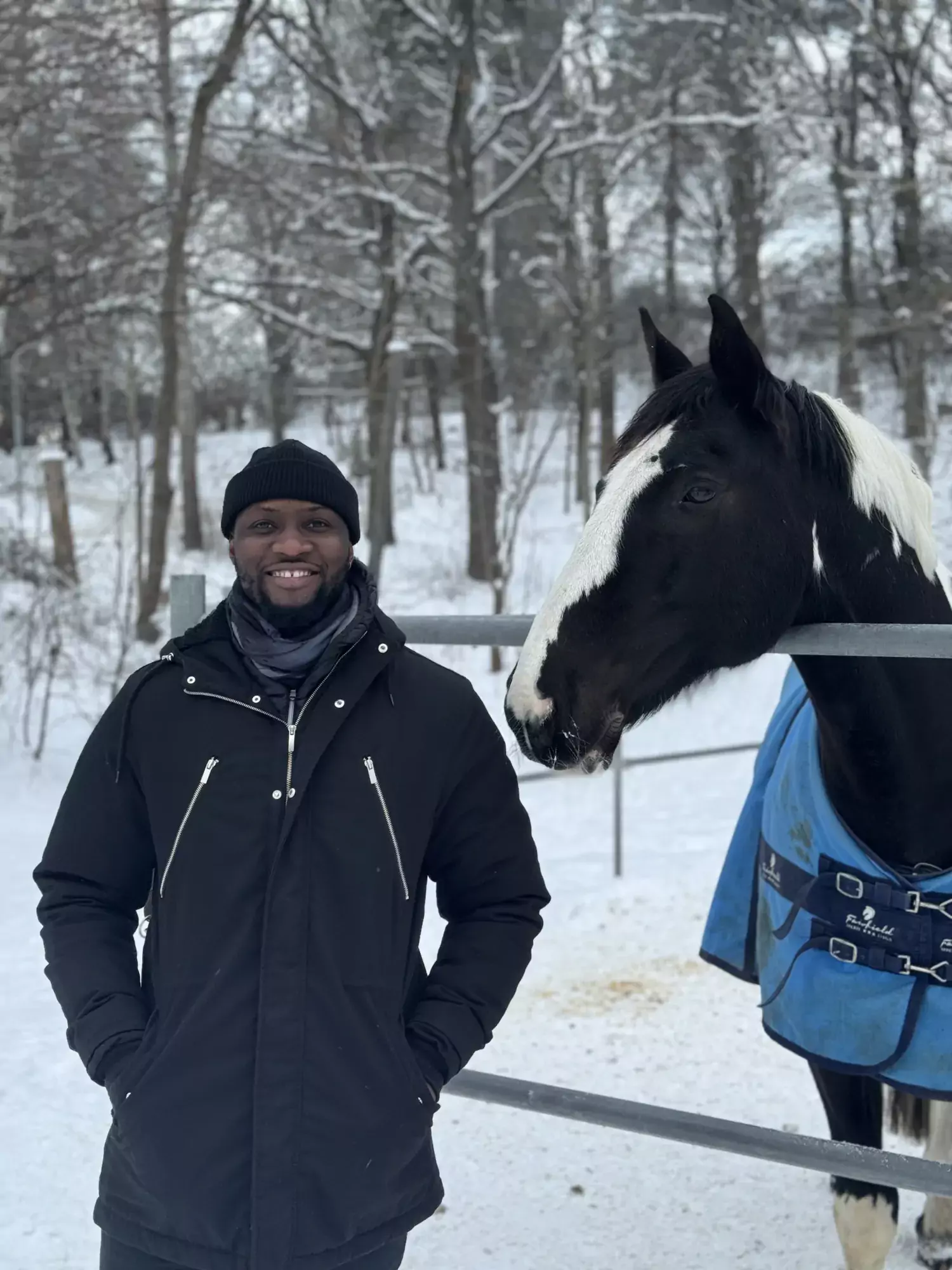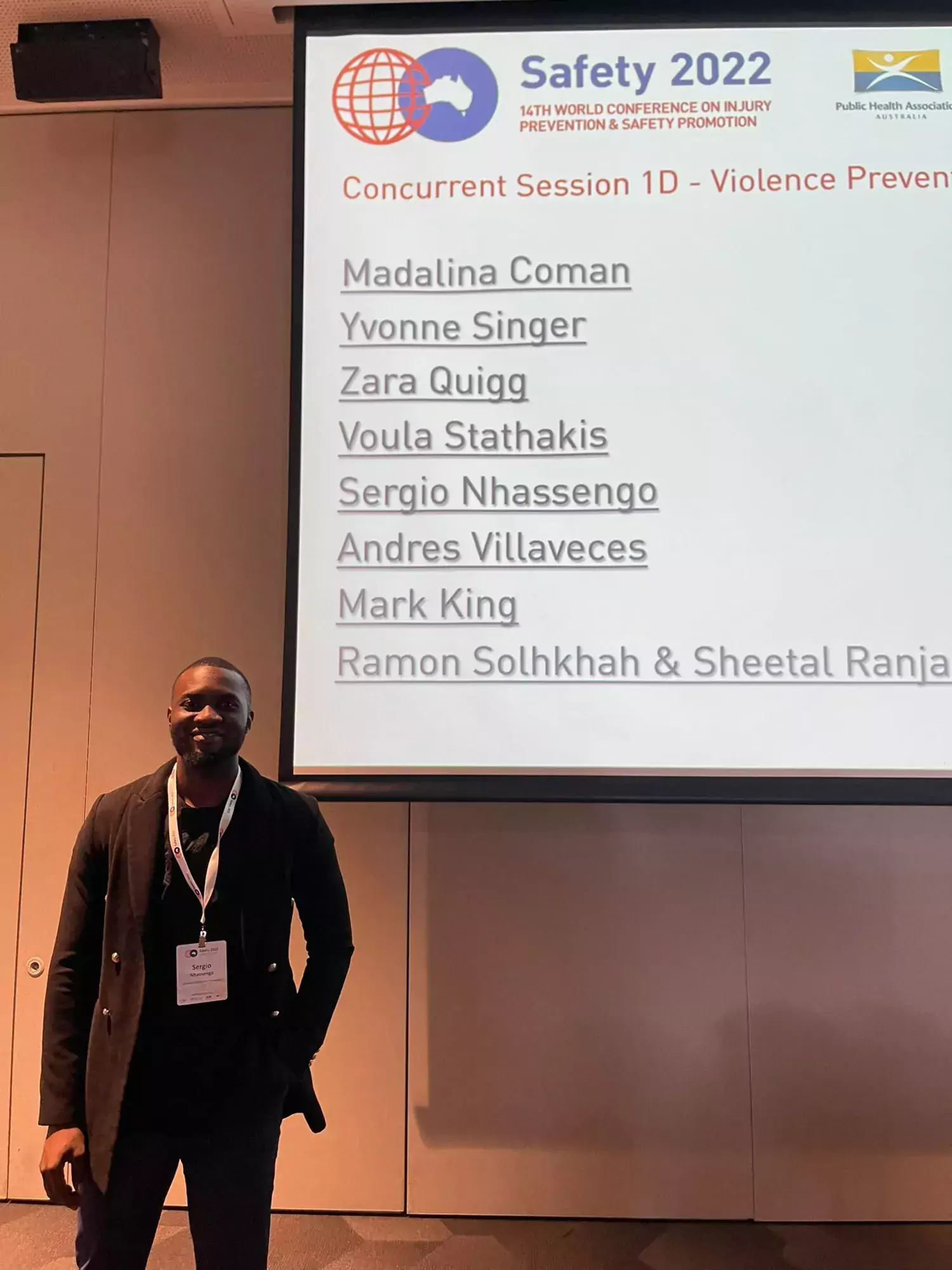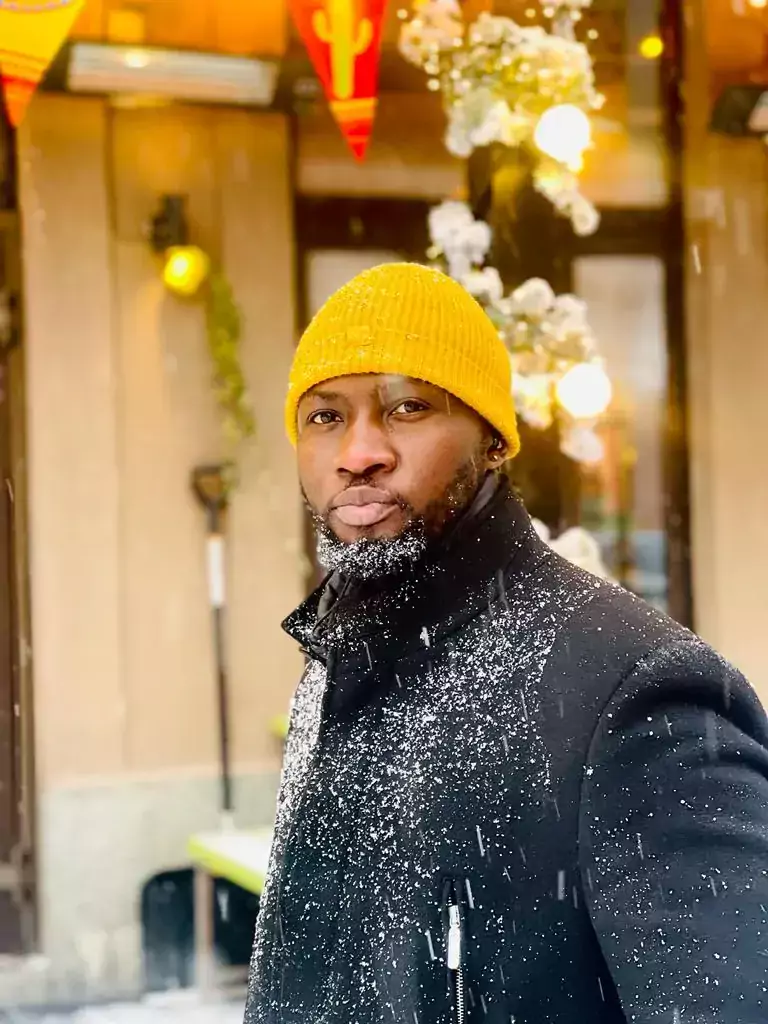Sergio Keita Nhassengo wants children to grow up in a society free from violence

Every year worldwide, around 1 billion children aged 2–17 experience physical, sexual or psychological violence or neglect, representing approximately half of the global child population. Sociologist Sergio Keita Nhassengo investigates epidemiology of violence against children in Mozambique and the readiness of stakeholders across organisations to counter and prevent child maltreatment. Meet the PhD student who wants a future where all children can live in a safe environment free from violence.
On the initial day of his master's program in Public Health, at the Faculty of Medicine, Eduardo Mondlane University in Mozambique, Sergio Keita Nhassengo found himself being told by the instructor that he was in the wrong classroom, simply because he introduced himself as a social scientist with a background in sociology. Fast forward two years, upon successfully completing his master's degree, Nhassengo was enrolled in the Sida program as a PhD student at Karolinska Institutet. In hindsight, it's clear that the initial scepticism of the teacher couldn't have been more misplaced.
My contribution to child maltreatment prevention
Nhassengo underwent an interview with his current supervisor Lucie Laflamme and Helle Mölsted Alvesson, for the PhD position. Expressing his interest in addressing issues related to vulnerable groups, gender inequality, and sexual/gender minorities, Nhassengo reveals that his original proposal did not centre on violence against children. Instead, his initial proposal focused on studying the stigma and discrimination faced by homosexuals in Mozambique.
Upon learning that the PhD program emphasized trauma and violence, Nhassengo was tasked with revising his proposal within a tight timeframe of five hours. Undeterred, he returned in the afternoon to present his revised PhD proposal, ultimately securing acceptance into the program.
"In the beginning I was sceptic but after some literature review, I realized the magnitude of the problem, and how much must be done to assure that children live far from violence. It somewhat shocked me at the beginning to learn about the burden and the long- and short-term consequences of violence. At that moment I started to see my research project as a contribution to child maltreatment prevention" says Nhassengo.
Limited awareness of child maltreatment prevalence hinders effective prevention
Nhassengo’s research maps out the prevalence of violence against children and the circumstances and consequences of violence related injuries.
“A significant obstacle to prevent violence against children and provide necessary care services for child victims is lack of knowledge around the magnitude and distribution. It makes it difficult to obtain a realistic picture of the burden and to implement intervention programs based on scientific knowledge with meaningful impact”.
The second part of his project aims to assess the ability and readiness of Mozambican stakeholders to ensure referral mechanisms of injured victims and prevent violence against children.

"I believe that my research can contribute to the prevention of violence against children, giving research evidence of the epidemiology, readiness of the community to prevent child maltreatment and healthcare response to children victims of violence. This knowledge can contribute to the ability of a range of stakeholders to ensure child maltreatment prevention and protection to children. And to some extent influence the public to perceive violence against children as a serious health problem which must be prevented".
He explains that the challenges in sub-Saharan Africa countries, particularly Mozambique to prevent violence against children involves a collective of risk factors that must be addressed. According to Nhassengo the key factors include the change of norms and attitudes towards violence against children where corporal punishment at home or in schools is socially acceptable, enforcement of the law in place, promotion of children’s rights, gender equality, and evidence-based interventions to prevent violence against children.
A sociologist at a medical university
Nhassengo reflects on his upbringing, recalling that watching the news with his father was almost mandatory and when being tasked with buying the newspaper for his parents he used the read the news himself as well. This ignited his early interest in social issues, politics and human science. But his journey into sociology truly began during the initial week of his bachelor's program.
"I remember in the first week of the course introduction to sociology in my bachelor’s, the teacher came to the classroom and said if you are studying to be rich you are in the wrong course. If you are here to gain knowledge to understand complex and simple individual or societal behaviour, or to empower yourself to be active participants in the society you are in the right course".

Nhassengo, seeing public health as a vast multi-disciplinary domain, values his sociology background as a unique lens through which he observes health challenges. In the last 5 years, he has been working in rehabilitative programs and services for offenders while in prison, which has given him the opportunity to work with professionals from different areas including psychologists, social workers, medical doctors, community psychologist, jurists and anthropologists. With a multidisciplinary team he has experienced how different areas of knowledge can complement one another to reach a common goal. He also adds that at Karolinska Institutet besides having colleagues with different backgrounds, the multicultural environment has been a positive experience.
“Violence against children is a public health problem that requires a holistic approach, as a sociologist I investigate the sociological roots and risk factors associated with violence against children to provide possible solutions for its prevention".
We owe our children a future free from violence and fear
"My dream is that every child in the world will grow up in an environment free from violence and that they can live with good health, loved and happy. For children in Mozambique, I want to see an ending of early marriage and sexual assault against girls and a ban of corporal punishment in all environments".
Nhassengo had his halftime seminar on January 12, in Widerströmska building. After his defence that will take place next year in 2025 Nhassengo plans to continue to work with child health whether doing research or interventional programs and looks forward to new opportunities and challenges in different field as well.
